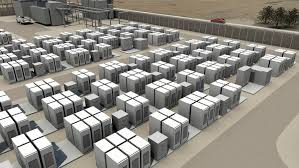
Breaking News
How Do Dumb People or Corrupt People Get Elected to Top Positions?
 Brand New Solar Battery With THIS Amazing Feature! EG4 314Ah Wall Mount Review
Brand New Solar Battery With THIS Amazing Feature! EG4 314Ah Wall Mount Review
 This New Forecast Just Got WAY Worse...
This New Forecast Just Got WAY Worse...
 S3E4: The Freedom Movement Funded Its Own Prison
S3E4: The Freedom Movement Funded Its Own Prison
Top Tech News
 The day of the tactical laser weapon arrives
The day of the tactical laser weapon arrives
 'ELITE': The Palantir App ICE Uses to Find Neighborhoods to Raid
'ELITE': The Palantir App ICE Uses to Find Neighborhoods to Raid
 Solar Just Took a Huge Leap Forward!- CallSun 215 Anti Shade Panel
Solar Just Took a Huge Leap Forward!- CallSun 215 Anti Shade Panel
 XAI Grok 4.20 and OpenAI GPT 5.2 Are Solving Significant Previously Unsolved Math Proofs
XAI Grok 4.20 and OpenAI GPT 5.2 Are Solving Significant Previously Unsolved Math Proofs
 Watch: World's fastest drone hits 408 mph to reclaim speed record
Watch: World's fastest drone hits 408 mph to reclaim speed record
 Ukrainian robot soldier holds off Russian forces by itself in six-week battle
Ukrainian robot soldier holds off Russian forces by itself in six-week battle
 NASA announces strongest evidence yet for ancient life on Mars
NASA announces strongest evidence yet for ancient life on Mars
 Caltech has successfully demonstrated wireless energy transfer...
Caltech has successfully demonstrated wireless energy transfer...
 The TZLA Plasma Files: The Secret Health Sovereignty Tech That Uncle Trump And The CIA Tried To Bury
The TZLA Plasma Files: The Secret Health Sovereignty Tech That Uncle Trump And The CIA Tried To Bury
Tesla Energy Reveals Powerpack Pricing, Starting From 200 kWh Of Storage

The smallest available ESS consists two 100 kWh Powerpacks (200 kWh total).
Powerpack systems include one or more battery storage modules and supporting hardware, including inverters, combiners and cabling.
The 200 kWh/100 kW ESS costs some $162,000 all-in (a single Powerpack alone costs $47,000 or $470 per kWh), which translates to $810 per kWh for the whole complete system.
Industrial customers can scale Tesla ESS up adding more blocks, up to 54 Powerpacks in total (5,400 kWh total) combined with 10 bi-directional inverters (2.5 MW total) consumer.
In case of the 5,400 kWh/2,500 kW ESS costs are estimated at $3,217,000 or $596 per kWh total.
If you need even more energy or power output, then Tesla prefers to contact directly to them.
"Tesla Powerpack systems are infinitely scalable. Contact us and we will help you configure an ideal system."

 Nano Nuclear Enters The Asian Market
Nano Nuclear Enters The Asian Market


